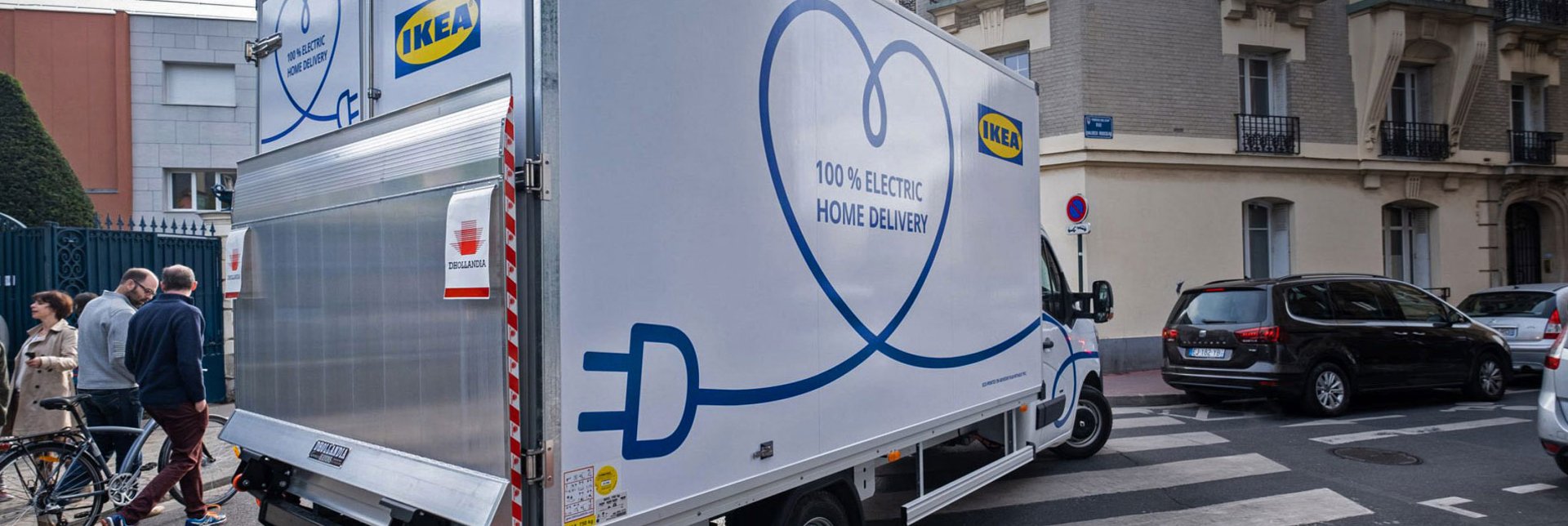At IKEA, we’re guided by our vision to create a better everyday life for the many people. A better planet is a better home for us all — but climate change threatens this for people today and generations to come.
That is why IKEA is committed to halving emissions by 2030 and reaching net zero by 2050. We are also committed to the Paris Agreement and to helping limit global temperature rise to 1.5°C above pre-industrial levels. To get there, we’re taking a number of actions to drastically reduce our greenhouse gas emissions. Accelerating the move to clean transportation is key to this.
Electric vehicles for cleaner transport
Today, we deploy electric vehicles (EVs) for last mile home deliveries in 20 markets including China, Spain, France, India, the UK and many more. By 2028, we aim for more than 90% zero-emission home deliveries in 31 markets. Moreover, IKEA lent its design skills to Renault and MAN to help design the EV trucks we need in Paris and Berlin — optimising home deliveries and reducing the number of vehicles on the road at the same time. Already today, we offer EV charging at all stores where we offer parking in 31 markets.
Ingka Group is making significant progress globally towards achieving zero-emission deliveries:
- We have come a long way since we set the target in 2018. Already in 2019 Shanghai became the first city where 100% of our home deliveries are transported by EV vehicles and today we have 100% zero-emission home deliveries across 20 cities, in 150 locations and more than 1500+ electric vehicles are in operation globally.
- Our latest forecast shows that we are making good progress towards the goal with some continued challenges. We expect significant progress to be made in 2025 due to the high number of secured vehicle orders in progress, gains we have made within charging infrastructure in the last year, and new policies coming into place which allow for heavier electric light commercial vehicles in many countries.
- We are working to more rapidly roll out zero emission vehicles through additional investments in vehicles and charging infrastructure, piloting new innovations and collaborating with other industry players. These actions include collaborating with truck manufacturers to test new EVs, investing in charging infrastructure, and advocating for policy changes to overcome regulatory barriers.
Our acceleration towards low carbon transport is a work in progress. Nevertheless, we hope that we inspire businesses, governments and policy makers to take ambitious climate action in this area.
